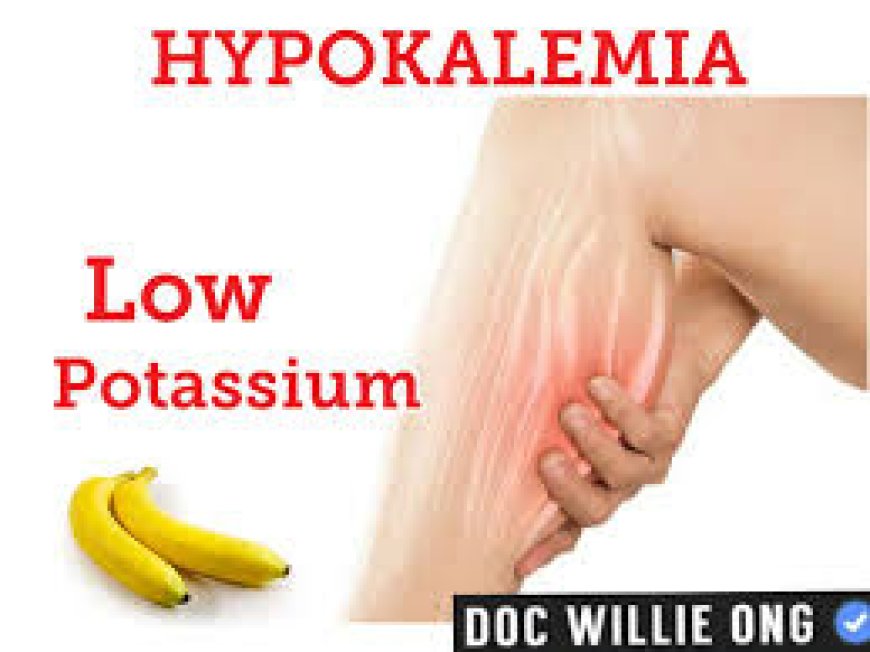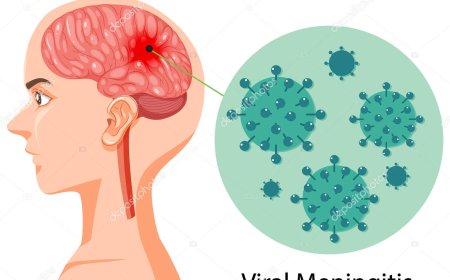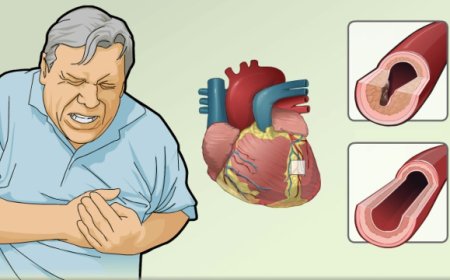Low Potassium Syndrome

Introduction:
Hello, young learners! Today, we're going to explore something called "Low Potassium Syndrome" in India. It's like a magical mineral that our body needs to stay strong and healthy. By learning about low potassium syndrome, we can understand how to keep this mighty mineral in balance and be superheroes of good health. Let's embark on this journey of health and wellness!
What is Low Potassium Syndrome?
Low potassium syndrome is like a special condition where the level of a powerful mineral called "potassium" in our body becomes too low. This magical mineral is important for our heart, muscles, and overall health.
Sign and Symptoms of Low Potassium Syndrome:
Low potassium syndrome can have different signs, such as:
- Feeling Tired: Like being low on energy and not feeling like playing or having fun.
- Muscle Weakness: Feeling like our muscles are not as strong as before.
What Is Low Potassium Syndrome?
Low potassium syndrome is like a special superhero condition where the level of an important mineral called "potassium" becomes too low in our body. This powerful mineral is like a secret hero that keeps our heart and muscles strong.
How Is Low Potassium Syndrome Classified?
Low potassium syndrome is classified based on the level of potassium in our blood:
- Mild Hypokalemia: When the potassium level is slightly low, like a little dip in a roller coaster.
- Moderate Hypokalemia: When the potassium level is more low, like a bigger dip in a roller coaster.
- Severe Hypokalemia: When the potassium level is very low, like a big loop in a roller coaster.
Causes and Triggers of Low Potassium Syndrome:
Low potassium syndrome can happen for different reasons, such as:
- Not Eating Enough Potassium: If we don't eat enough foods that have potassium, our body can become low in this mighty mineral.
- Vomiting or Diarrhea: Sometimes, when we are sick and lose lots of fluids, it can also take away potassium from our body.
Risk Factors with Examples of Low Potassium Syndrome:
Anyone can have low potassium syndrome, but some risk factors might make it more likely, such as:
- Unhealthy Eating Habits: If we don't eat fruits and vegetables that have potassium, our body might not get enough.
- Stomach Problems: If we have stomach problems that cause vomiting or diarrhea, we might lose potassium.
Types of Low Potassium Syndrome with Detailing for Each Type:
- Mild Hypokalemia: When the potassium level is just a little low, it's like a small bump in the road, and we can fix it with healthy foods.
- Moderate Hypokalemia: When the potassium level is more low, it's like a bigger bump, and we may need special medicines to help our body.
- Severe Hypokalemia: When the potassium level is very low, it's like a big mountain, and we may need special treatments in the hospital.
Diagnostic tests and treatments:
To know if someone has low potassium syndrome, doctors may use a simple blood test. It's like a tiny pinprick, and they can tell if the potassium level is too low.
Treatment:
The treatment for low potassium syndrome depends on how low the level is. Sometimes, eating foods rich in potassium can be enough, and other times, doctors may give special medicines to help our body balance the potassium.
Complications of Low Potassium Syndrome Prevention Techniques:
To keep our potassium level in balance and stay healthy, we can be superheroes by:
- Eating Healthy: Eating fruits like bananas and vegetables like potatoes can keep our potassium level strong.
- Drinking Water: Staying hydrated and drinking enough water helps our body maintain potassium.
Low potassium syndrome is like a special condition where the level of the powerful mineral potassium becomes too low. By eating healthy and staying hydrated, we can be superheroes of good health and keep our body strong. Remember, our body needs magical minerals like potassium to stay healthy and happy. Stay curious and be a superhero of good health, young learners! Happy exploring!
What's Your Reaction?
 Like
0
Like
0
 Dislike
0
Dislike
0
 Love
0
Love
0
 Funny
0
Funny
0
 Angry
0
Angry
0
 Sad
0
Sad
0
 Wow
0
Wow
0









































































